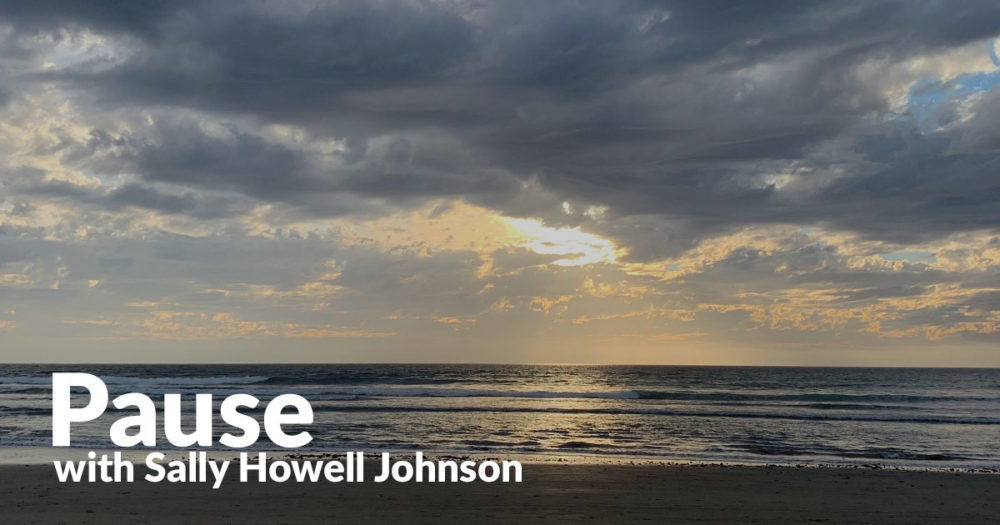Woke up this morning in St. Cloud where I am present for the gathering of United Methodists around the state of Minnesota. It is an annual gathering of both clergy and lay delegates for doing some of the work of the church. It is a time to meet old friends, worship together and be reminded of the broad swath of theological, social, political, economic and life experience tapestry we are when woven together. For me, personally, it is always a humbling experience and one that is a yearly reminder that this church which I chose at a young age is a complicated one, as all churches are.
The hotel room where I am staying faces east and since I had not pulled the shades before going to sleep last night, I was awakened early to the sun shining brightly through the window. Even though I could have slept later, I decided to get up early for a long morning walk along the river. Heading outside I was welcomed not only by the sun but also by the sound of the many trains that follow the paths over the river near the River’s Edge Civic Center. I do love the sound of a train so it had already started out to be a comforting morning walk.
But as I walked, I realized I was having an unusually intense feeling of comfort. What could it be, this sensation of calm and contentment? Then it hit me. In the air was the strong scent of bread baking. Looking ahead I saw that the Country Hearth Ovens buildings were just ahead. All around me bread was being baked on this sunny morning! I breathed in the sweetness and the fullness of the smell.
I have been told by those who should know that our sense of smell is the one that holds our deepest memories. I recall a conference years ago on the subject of children’s spirituality. People were asked to tell stories of their earliest spiritual experiences. I was struck with the number of stories told by people who had grown up in the Roman Catholic tradition, how the smells of their liturgy were so deeply meaningful. They told wonderful stories of how those scents shaped their experience of the Holy, how they gave meaning to their young understanding in ways words could not. I remember feeling sad for those of us who grew up in traditions that had chosen to remove the sense of smell from the actual practice of doing church. It seems a great loss.
My sense of smell is not one of my more developed senses. Our younger son has one of the most well honed senses of smell I have ever encountered. He can walk into a room and say ‘it smells like Mamgee in here’ and break out into a smile thinking of his grandmother. His deep ability has often helped trigger my own sense of smell. At his prompting I am able to smell aromas I might otherwise ignore. It is always a blessing.
How is your sense of smell? What scents trigger memory for you? Which smells bring comfort or the sense of a loved one unseen but now present because of this invisible component that rides on air? What smells repel you and cause you to want to flee?
As I think back to my earliest experiences of church it is probably not completely true that my olfactory nerves were not engaged. There was of course the smell of starch in the dress I was wearing and the Baby Powder my mother poured down my back before the scratchy but frilly fabric was buttoned up. There was the sweet scent of my mother’s perfume and the gentle odor of my father’s Old Spice wafting down the pew. There was the earthy, sweaty smell of my brother sitting next to me and all the various powders and perfumes of the full-bosomed older women whose warbling soprano voices hung in the air. In the summer when the windows were open in the church, there was the sweetness of apple blossoms and the pungent yellow smell of forsythia. There was the smell of cigarette and pipe tobacco lingering on the men’s clothes and yellowed fingertips, a smell both repulsive and rebellious. There was the smell of the peppermints my mother kept hidden in her purse within easy reach to pass to us when we fidgeted.
These smells may not have been frankincense or myrrh and they certainly were not swung in a fancy, gold sensor during procession. But they still evoked holy in their own way. Perhaps they still do.





